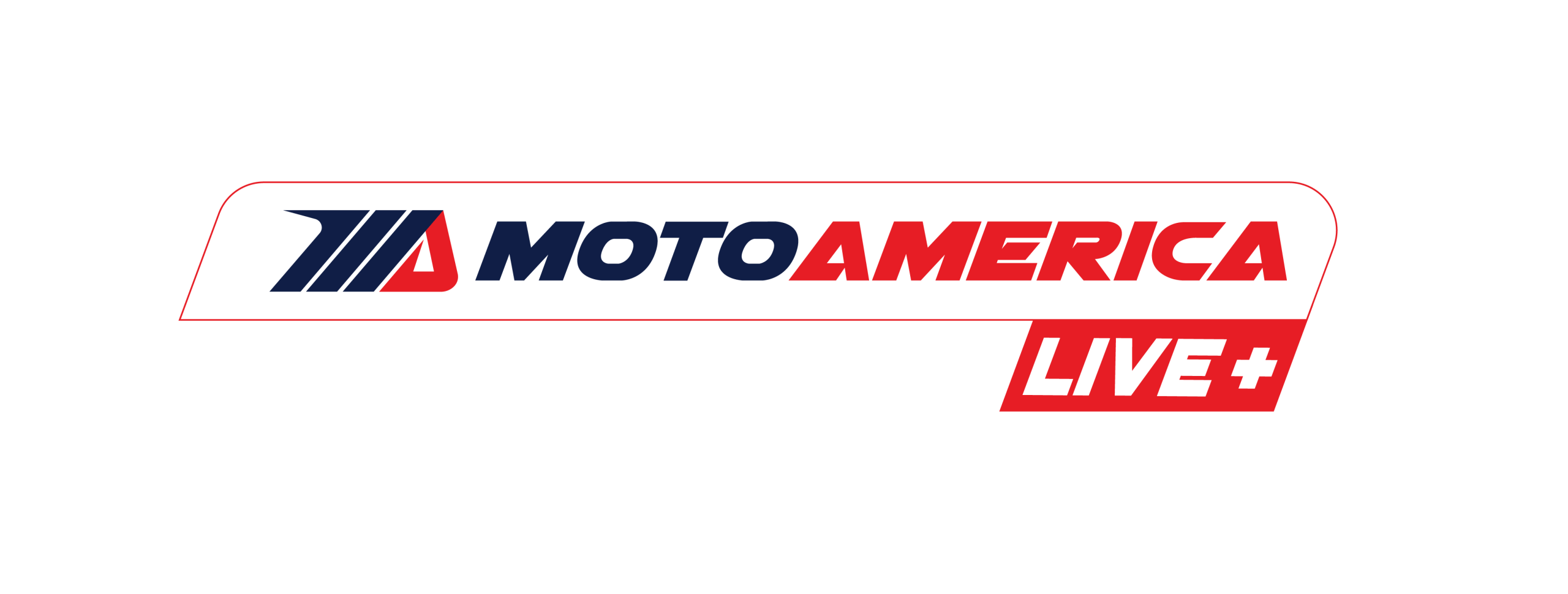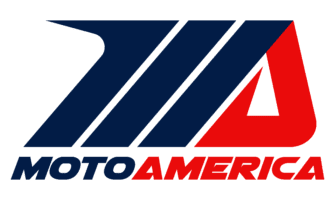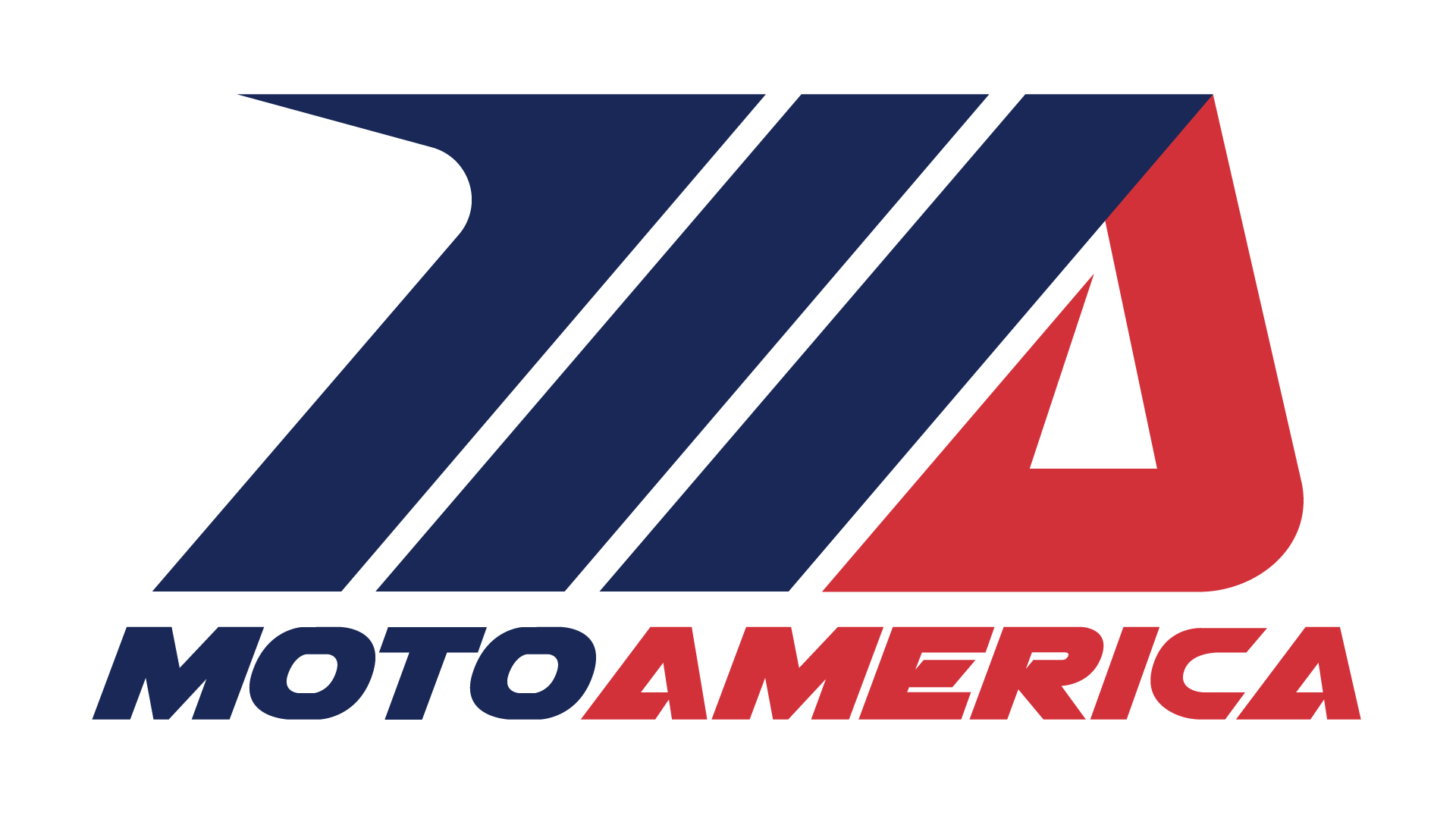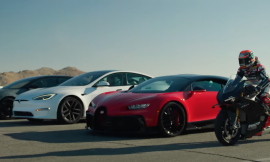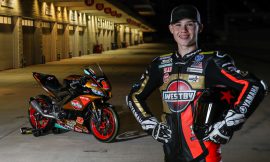The following is the ninth in our “21 in ’21” features that highlights one of the 21 AMA Superbike Champions each week as we move through the 2021 MotoAmerica season – the 45th year of the premier class championship.
With all due respect to every motorcycle racer in the world, Thomas Stevens always seemed too smart to be a motorcycle racer. In spite of that, and at least partially because of that, he worked hard, set goals and met them. It all culminated with the Floridian winning the 1991 AMA Superbike Championship on a Vance & Hines Yamaha.
Stevens blatantly admits that he is “no Eddie Lawson” when discussing a racing career that was highlighted by the Floridian winning the ‘91 Superbike title, but he sells himself short. Stevens was a heck of a motorcycle racer. You don’t win championships by being mediocre.
But first things first. How did a kid from Maryland end up racing motorcycles?
“I lived in Maryland until I was 17 and once I graduated from high school we moved to Florida,” Stevens recalls. “Growing up, (it was) dirt bikes. My uncle brought a minibike home and that was like the end of it. At seven I started riding, and my father had some friends of ours that raced. I was 11 and he said, what do you think about going racing? I was like, yeah, of course. So, we spent the next six years going racing. I won the Maryland State Youth Championship. Meanwhile, though all this was happening, my dad had cancer from the time I was six years old until I was 16. So, my dad passed away when I was 16. He wasn’t around to see me win the championship. Well, he was still around, but he couldn’t go to the races anymore. After I got done doing that, I raced one more year on 125s in Maryland. My mom said, what do you think about moving to Florida? I thought my racing was over.

“So, we moved to Florida. I was working, partying. Every weekend for me prior (to that) was going to the races. I was riding home one day, and I was a 19-year-old kid and I was like, ‘If I don’t go racing, I’ll be 30 years old looking back going, I shoulda, coulda, woulda.’ I just was lucky enough to have some really good people around me that helped me financially, of course, like my mom, because I didn’t have any money. I started out, the best way I knew how to go racing was to start sweeping floors at the motorcycle shop so I could get a discount (on parts). Saved my lunch money during the week so I could add another entry at the races. I wanted to give it my all, and that’s kind of how we got into it.”
Next up was road racing and it all started in West Palm Beach, Florida. Turns out, Stevens was pretty good at it.
“I went over and did the new rider school on my streetbike, because that’s what I had for transportation,” Stevens said. “A friend of mine that was a pro, he said, ‘I’ll (safety) wire your bike up. Come on over.’ Once I got a streetbike I was really hooked from the speed, and then once you get on a proper racetrack and you can go as fast as you want to go, then you’re really hooked. So, I started at West Palm Beach. Another friend of mine had a van that could take me to the races because he needed someone to go with and he had money to put in the gas tank, which I didn’t have, and we went racing. It just kind of took off from there. I went from Amateur to Expert because I won so many races in West Palm that they automatically bumped you up to Expert. So, then I applied for an expert license with WERA. That was my first year road racing from Amateur to Expert and I finished fifth in the country. They were paying money at the time for the Grand National Final for the 600 class. I finished fifth and, of course, I was hooked and we were rolling.”
And the rolling didn’t stop. Suddenly, people started to notice this guy Thomas Stevens.

“It was ’85 when I won the championship, so by the time I first went road racing it took me about five years,” Stevens said. “But within two years, I won my first National. So, I’m no Eddie Lawson by any means, but I definitely had my head down. In my day, I put it together and within two years I won my first National at Road Atlanta as an Amateur Expert. Basically, I finished second at Daytona and then we went to Road Atlanta, and I won that one. Everyone was coming down going, who is this kid? Where did he come from? (Honda team manager) Udo Gietl came up to me and gave me his business card. Sammy Tanner from Arai back then gave me his business card like, ‘Call me.’ I was like, ‘okay.’ Then I started to where I was still going back to work, winning Nationals, being in magazines. I wasn’t sweeping floors. I was the assistant service manager at that point. My boss… I was lucky enough to give me time off to go to the races. Then it kind of took off from there.”
The next move was a shot at the big time with John Ulrich’s Team Hammer endurance team that was the dominant force in the WERA Endurance Series. And a test with Yoshimura Suzuki that didn’t go the way he would have liked. Well, the riding part was fine it was the rest that went awry… but, as they say, one door closes and another opens. For Stevens, the big door started with Kenny Roberts and ended with a Superbike title.

“I tested the Yoshimura bikes for Superbike and the president of Yoshimura at the time said that he didn’t think I had what it took, and that was even though I came within a half a second riding Scott Gray’s bike out at Willow (Springs),” Stevens recalls. “The guy told John Ulrich that I didn’t have what it took. So, I was on the couch. I was going to ride with John (Ulrich) again. Then the phone rang. It was Jim Allen from Dunlop. I was a Metzeler guy at the time. He said, ‘Hey, Kenny is looking to come back into the series. You should give him a call.’ Of course, as a kid – now, Kenny Roberts, I went to the dirt track races with my dad as a fan and, of course, Kenny was a superstar back then. So, just the mere fact to get the call. So, I called him up and he got me on a plane the next day and went from LA to Modesto. Had a meeting with Kenny and on the way back I said, ‘Mr. Roberts, do I have the deal?’ He said, ‘If you F’n call me Mr. Roberts again, I’ll kick you out of the car. My name is Kenny.’ ‘Okay, Kenny.’ He dropped me off and then I rode (for Roberts) in ’88, ’89. I finished second to John (Kocinski) in my first year in the 250s. Then ’89 was a little rocky. I started falling down. Yamaha came back into the thing with Daytona, and I tested. I got the deal. I finished fourth in 1990 (in the AMA Superbike Championship) and was the AMA Superbike Rookie Of The Year. Then we came back with consistency. I had a new mechanic, Jim Leonard, and we won the Championship.”
The 1991 season was the magical one for Stevens and the Vance & Hines team. Yamaha had never won an AMA Superbike crown prior to Stevens making it happen in ’91.
“There’s more than one (story), but the biggest one was winning the race at Mid-Ohio,” Stevens said of his lone win en route to the title. “I was leading the championship going into Ohio. (Scott) Russell and (Miguel) Duhamel were starting to build some momentum, I guess you could say. So, I was keeping an eye on those guys. I knew that I qualified on the front row… As the race progressed, I just went faster and faster and won the race and separated myself in the points a little bit.

“I guess the biggest memory, of course, is we had to go run a street circuit in Miami and it was unbelievably dangerous. I knew I had to finish behind Scott (Russell) no matter what, and that’s what I did to become the champion. So, my best memory, coming around the last turn knowing that I’ve won the championship. My whole crew was there. They were just going bonkers because Yamaha had never won a Superbike Championship until I did it. That’s the greatest memory, of course. Them hoisting me over their heads and carrying me around. It was a big deal, especially for a kid sweeping floors at the motorcycle shop to making a six-figure salary riding a motorcycle. It’s a dream.”
The dream didn’t end right there. Stevens was able to continue his career with solid results, but never another title.
“I raced up until 1998,” Stevens said. “I finished second in the Superbike Series when I switched to Kawasaki (in 1992) because I couldn’t get a deal done with Terry (Vance). I switched over to Kawasaki and finished second in the country. Then I just didn’t feel it. Suzuki was coming back in, and I jumped onto that – some people would say money wagon because they were offering me more money than I ever imagined that I was going to make. So, I did that. Then, by 1998, I was riding for Terry (Vance and on a Ducati). I had fallen and broken my collarbone. I had some really smart people around me. Terry at one point said, ‘You should think about retiring.’ I was like, ‘What? Retire?’ But then after you’ve had multiple… I’ve broken my clavicle six times. I was a bit lucky. I never spent a night in the hospital. I lost three teammates along the way. Russ (Paulk), Donald Jacks, Larry Schwarzbach. He (Schwarzbach) was my teammate and he got killed at Mid-Ohio, but I had already left the team. Still, after all those years, I’m being beat up. It’s time for me to go, and that’s what I did.”
Following his retirement from racing, Stevens did what retired people do. And it didn’t last long.

“Then I did nothing for a few years,” Stevens said. “Played a lot of golf, rode some motocross, helped my wife with her business. Then I got into the pool industry through a friend of mine. Now I’m a certified pool contractor. I built that business, and while that business was building, Chuck Aksland and the KRAVE Group bought the series here in America. I reached out to Chuck, not in a position of, ‘Give me a job. What can you do?’ I came to MotoAmerica and said, ‘Chuck, if you need my help, I’m here.’ He said, ‘Well, I appreciate it.’ I said, ‘I’m here to give back.’ They called me about midway through the year and said, ‘Hey, would you be interested in being the rider representative?’ I was like, ‘Sure. Hold on, let me talk to my wife and make sure it’s okay with her to go back to the races. Absolutely!’
“That’s we did. I did it for five years – four years as the Rider Representative, and then I took on the position of Race Director because Doug Chandler was stepping down. I did that for about a year, and then it just got to a point for me with COVID and everything that was going on, my business is an essential business and being on planes… I had done it for five years, and I just wasn’t having any fun at it anymore. There’s a lot of pressure that comes along with being the Race Director. It was pressure that I handled for a year, and then the second year I just had so much stuff going on that it was time for me to step down. I told Chuck and the crew that I had to step down. It’s time for me to go. But it was a wonderful experience being back at the races for five years and being on the other side and working with guys like yourself and everyone else involved. MotoAmerica has got a really great crew and they’re doing a great job as far as the series.”
With a thriving business, a healthy and happy family, Stevens is living a different dream now. But he’s also made sure of passing down his love of motorcycles to his two sons.
“I have two sons, so we really didn’t go very far away,” Stevens said. “So, I have a 2021 YZ250 that Yamaha provided me, which is great. I have an enduro bike that’s a ’21. I have a streetbike. I still ride. I watched Eddie (Lawson’s) interview which was great because I’m 56. The thing about motorcycling, something that you know, it’s a sport that you can do for your whole life. So, it’s kind of like a golf thing where you can play as a youth, and you can play as an adult. So, I’m still playing as an adult at 56 years old. I go ride motocross, woods… I rode actually yesterday at my sister’s house with my kids. So, I still enjoy it.”




